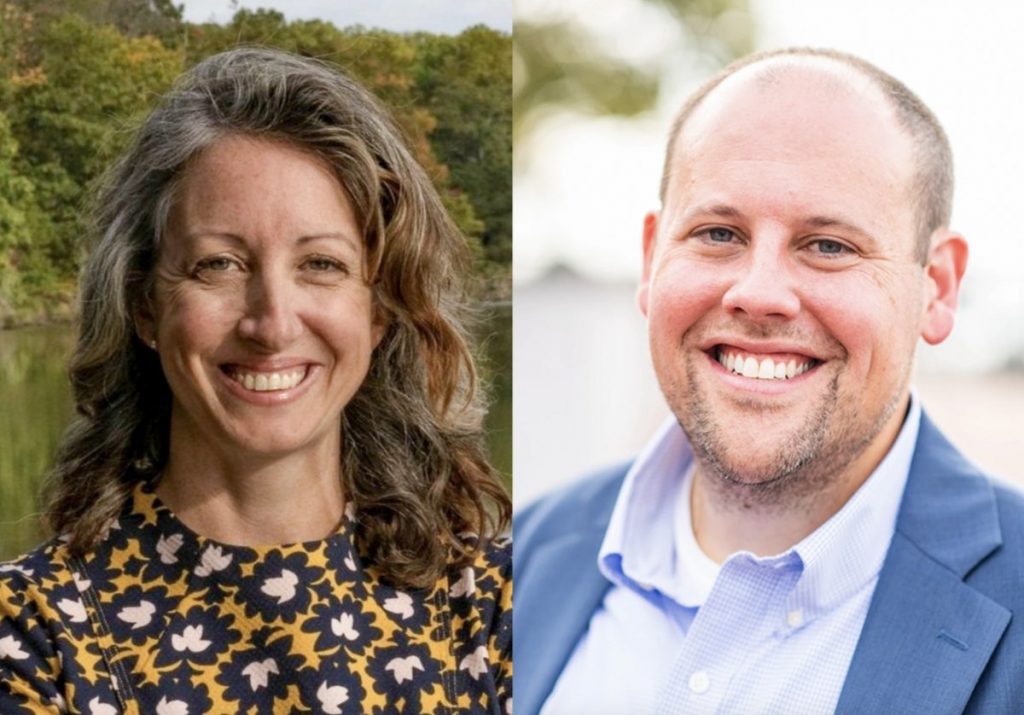
Mariia Novoselia
Staff writer
A flower’s bloom may be temporary, but the bloom of one Virginia Beach, Virginia, educational building will last for decades.
“We’re all (devoted) to make sure that (our) flower can survive as long as possible,” said Chris Gorri, manager of the Brock Environmental Center.
Designed to function like a flower, the center, created by the Chesapeake Bay Foundation, was awarded Living Building Challenge certification in 2016, as well as LEED Platinum certification from the United States Green Building Council.
Gorri and foundation CEO Hilary Harp Falk will share their story of choosing sustainability with Chautauquans at 12:15 p.m. today at Smith Wilkes Hall for a Bird, Tree & Garden Club Brown Bag.
Gorri said the Brock Environmental Center is “completely self-sustaining and off-the-grid as much as possible.”
The materials used for the center, he said, were selected with a lot of attention and great care – volunteers spent more than 25,000 hours over the course of three years to retrieve all the necessaries in accordance with a special list issued by the Living Building Challenge.
Internal walls are usually made of drywall, which Gorri said contains coal ash. Coal ash, however, has chemicals that Gorri’s team did not want in their “flower.” For that reason, they opted for drywall made with natural gypsum. Getting this kind of drywall, he said, took “six months of phone calls, meetings and emails.”
The distance that materials have to travel to the building site also affects the project’s sustainability. That’s why, Gorri said, they limited themselves to a radius of 500 kilometers, or a little over 300 miles. Being located close to the shoreline, the foundation faced a little bit of a bind because of this restriction.
“But we were still able to color within the lines and play within them to make sure it was sustainable for everybody,” he said.
The loophole Gorri and his team found is that if the materials they used were salvaged, say from a landfill, they don’t have to be on the approved list.
“We became dumpster divers of the area and … had four dumpster units full of stuff,” he said.
His favorite find from the salvaging process, Gorri said, is old bleacher wood. The local school system, he said, was upgrading their 1950s bleachers to ADA-compliant ones. The team “gave (the wood) a light sanding and put a new stain on it.” As a result, those who walk throughout the building can now see carved out names and tic-tac-toe grids.
Their second-favorite find is reclaimed gym floor. Gorri said they refinished it for every room except one.
“You will tell people that this is reclaimed gym floor, and they’re like ‘OK,’ and then we bring them to the room (where it’s not refinished), and they’re like, ‘Oh my God, that’s a gym floor!’ ’’ Gorri said. “Those two things are ironically coming from the same space in school but tell a story of the past, present and future of it.”
The Chesapeake Bay Foundation, Gorri said, made investments for that sustainability. Additionally, since the materials the organization used were on the approved list, he said even if something ends up in a landfill, it will not have a negative impact.
Gorri and Falk’s talk will address the importance of buildings like the Brock Environmental Center and their role in combatting climate change.
“We just hope that our buildings educate and inspire others,” Gorri said.
Chautauqua and Chesapeake Bay have a lot in common, Gorri said, which is something he and Falk will cover in their lecture. Both the Institution and foundation are “a group of dedicated people that are aligned under the same mission” and face issues of pollution and climate change.
“Sometimes our challenges are a little bit different, but there are so many similarities between the two,” he said. “Groups can work together, think together and solve problems.”
Gorri’s journey with the Chesapeake Bay Foundation started in its headquarters in Annapolis, Maryland, which was the first of the organization’s buildings to receive USGBC’s LEED Platinum certification.
There, Gorri said he ran a special events program that generated both community engagement and revenue. Then, he was invited to join the design team of the Brock Environmental Center.
It became the first commercial building in the United States to be permitted to capture rainwater, treat it onsite; then use it for drinking. There are now over 10 buildings in the country that can do this, Gorri said.
The organization has “a robust education program,” Gorri said, but previously, students only visited for day trips. The local public schools superintendent approached him, asking if there was a way to educate kids in the building every single day.
Now, a special classroom built during COVID-19 hosts the Virginia Beach City Public Schools Environmental Studies program, educating juniors and seniors interested in environmental careers.
Currently, Gorri said the foundation is collaborating with several school systems using that classroom as a model. The organization is open to partnerships with anyone who wants to create a sustainable building within the watershed, he said.
“We are sharing our knowledge and our lessons learned in hopes that others have a leg up when they go on with their projects,” Gorri said. “If you get to build one of these buildings, we’ll fully support you anyway we can, but the idea isn’t that you have to do all of this to be successful. The idea is that you can take components from it and ultimately, reduce your impact on the environment and create a positive one.”




